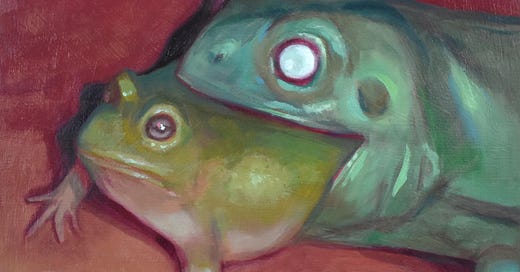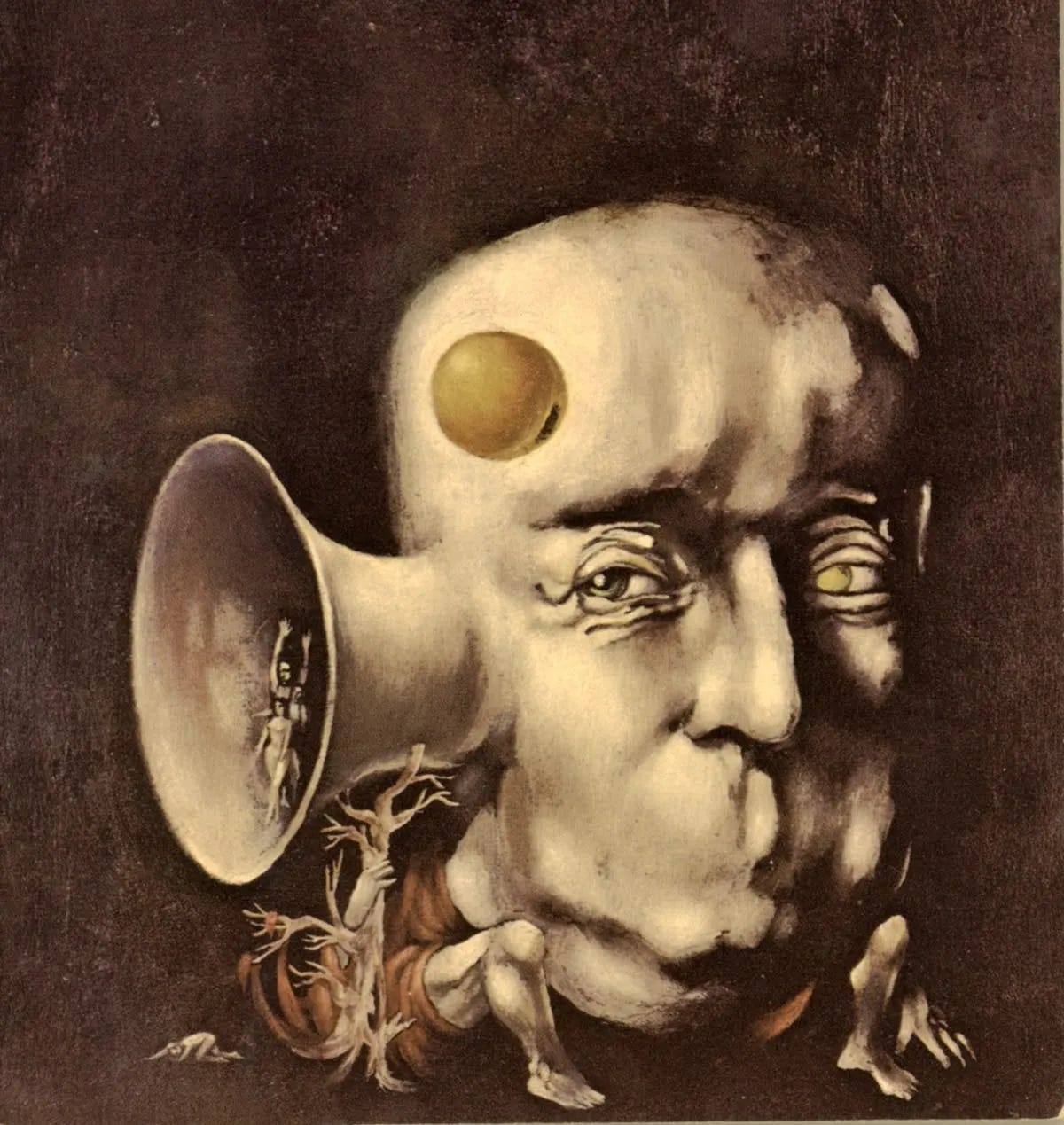Perri’s favorite part of the appraisal job was the pre-listing. Some of the estates she evaluated were so ensnared in their holdings it took up to two weeks of cataloguing before she could announce the sale. And that meant lots of time with the most interesting items collected by the deepest pocketed humans.
The Fog plot was thick. Ruben Wrubel Fog laid recently to rest, the owner of a vast wealth accumulated largely by a series of real estate investments throughout northern Pennsylvania made by his great-grandfather in the late 1880s and coaxed up in slow value by succeeding generations. The Fog line ended with the late Ruben, who had married twice but never fathered a child, leaving his largesse to an unintegrated trust.
Already four days into her appraising, Perri had found a trio of oddities, the strange trophies of a lifetime collector that made this work worth itself, around all the demands and dress-downs of a typical client’s heirs. All three were part of Fog’s Biblical era collection— the attached receipt dated them each from 2000–1500 BC.
The first was a coil-built jar of earthenware so ancient looking its crispness in hold was remarkable; Hebrew letters on it spelled אפר פרה אדמה. The second was a solid gold crown, heavy enough to crush by slow force whosever head was placed beneath it. And the third was a solid cube of rock, a slab of black obsidian with the name 𓇳𓂋𓏤𓄟𓋴𓏤𓈖𓏤 carved on it.
This last one took two temp workers to remove, under Perri’s direction, and as she examined it, she heard a sound. Coming from within. With some difficulty, she raised the rock to her ear. A small rustle. She placed it carefully on the table and pressed her ultrasound scanner to it. And from within came again, undeniably, a familiar sound.
Thump thump.
The drudged repetition of a heartbeat.
“Get the water saw,” she instructed one of the temp workers.
They took turns slicing the edge of the stone until Perri hit an air pocket close to the center. The opening was about the size of a globe and just as round. Inside was a frog so large it took up three quarters of the space.
Perri put on gloves to examine the amphibian. It was grey-skinned and crowned in tubercles. Its heavyset eyes were far back in its head, above large nostrils. It appeared to have no mouth. No mouth, but a working vocal sac, which bulged outward, like the animal was chewing, even though it lacked an opening for feed. Strangest of all, it was absolutely alive, its heartbeat as steady as Perri’s own, its nostrils working to suck in air.
Perri asked a temp worker to fetch her a large plastic container and a screwdriver. When he returned, she punctured three large holes in the cover and put the toad in the breathable plastic. She hesitated, and added in the pieces of the now broken black rock. “We should call the chief assessor,” she told the temp. He wore his sandy hair long and shaggy, and was more pliable than the other temp, happy to do whatever Perri asked, no question. Half the time the buzzcut girl asked for a rationale when given instructions.
“I can write him an email. Or call, if you like? He’s responsive to text, too.”
Perri nodded.
“Which one?”
She said nothing, just lifted the plastic to examine the large ugly frog. The rubbery pouch under its mouth bulged even larger, like it was trying to coax something out, like it had what to expel. Perri put the plastic container on the oak table and covered it in a cloth. “Just tell him.”
The temp nodded. Looking at the frog had given him a feeling similar to his boss’s. The frog’s throat pushed, like it was trying, really trying, to share something, to croak, hell maybe to vomit, but it couldn’t because it was locked inside itself. It was like that book he struggled to read (since nothing about the story was as solid as the title): I Have No Mouth and I Must Scream.
The temp kept up his work, staying silent near Perri while she went at it, another twelve-hour day. Good news for his checking account, bad news for his sleep window.
When Perri finally called it, the temp summoned a car to take him to the hotel ten minutes from the estate. He kept thinking about the frog in the plastic container. The way the skin of its throat expanded, the impossibility of it existing in stone that solid for ten minutes, let alone five millennia.
For an hour, on his fourth-floor hotel room, the sandy-haired temp worker assisting on the listing of the estate of a collector with a vast collection and no living heirs tossed in his bed, evading sleep like a caffeine drip. Finally the call was too loud to ignore.
He quickly dressed, slipping his gold watch in his pocket. If prompted, its recovery would be his reason for returning.
He again summoned a car and nodded at the guard in the security booth. She asked his name, and since it was on the list and there was nothing restricting visits to certain hours, she let him in.
The front of the mansion was unlocked.
The frog was still on the large table in the middle foyer where Perri had set up their appraisal camp, confined in the container. When the temp flashed his phone-light, he saw it was still working hard on its throat bulge. Straining. Straining straining straining to let it out.
“Don’t worry, buddy,” the man said. “I’ve got you.”
He opened the plastic and scooped up the ancient animal. In his hands it grew docile and still. Its vocal sac ceased moving.
“This might hurt,” the man said, reaching for an item on the long table. “But it’s a pinch for a purpose, I promise.” He opened an X-Acto blade and pressed it to the place where the frog’s lips should have been. He slid it across, a single long slimy line.
An orifice only vaguely like a mouth slopped open, and the frog collapsed. For a moment, the man was terrified that he’d killed it trying to help it, but then the frog leapt up, gashed mouth bear-trapping wide, and made a horrible retching noise. Its vocal sac bulged. From the depths of it, a second frog emerged, as slimy and large as its parent. This one had a mouth and its mouth was already open, and it too regurgitated an even slimier frog. Within moments the room was filled with the low rumbles and awful splashes of regurgitating reproducing amphibians.
The sandy-haired temp worker tried to flee but was soon taken out.
Afterward, once the frogs had left the house but before the fiery showdown on the hosed swamp in the center of town, Perri would discover, in the shards of black stone in the plastic, left behind like a single tadpole the size of her shoe, an engorged and monstrous remainder. The froggy sluggy thing was clinging hard to the stone, suckling it like a baby to mother. Perri considered science and dismissed it handily in favor of sanity. She picked up the largest slab of black stone and squashed it down hard on the thing. She pressed until whatever was under there was pure paste, believing that plagues of all kinds be put down immediately.







oooh I loved this! so creepy!
Nice one! I love stories that pose questions (what’s making noise inside the artifact?) and then gives the reader an answer only to pose a new question (why was it in there? What’s in its mouth?) kept me engaged and the final reveal was genuinely disturbing.